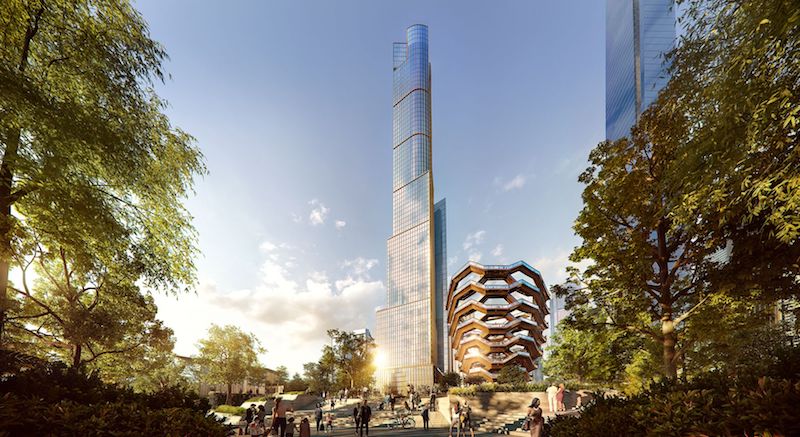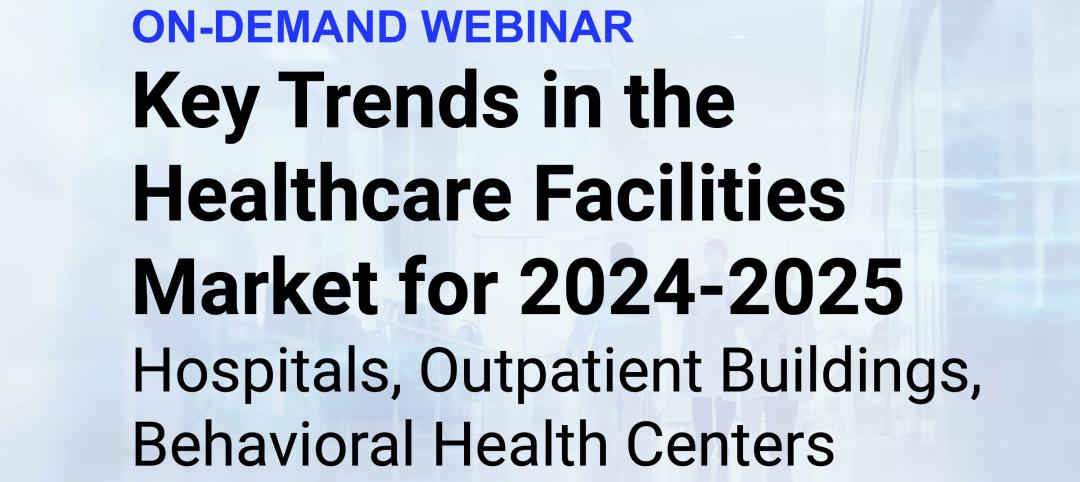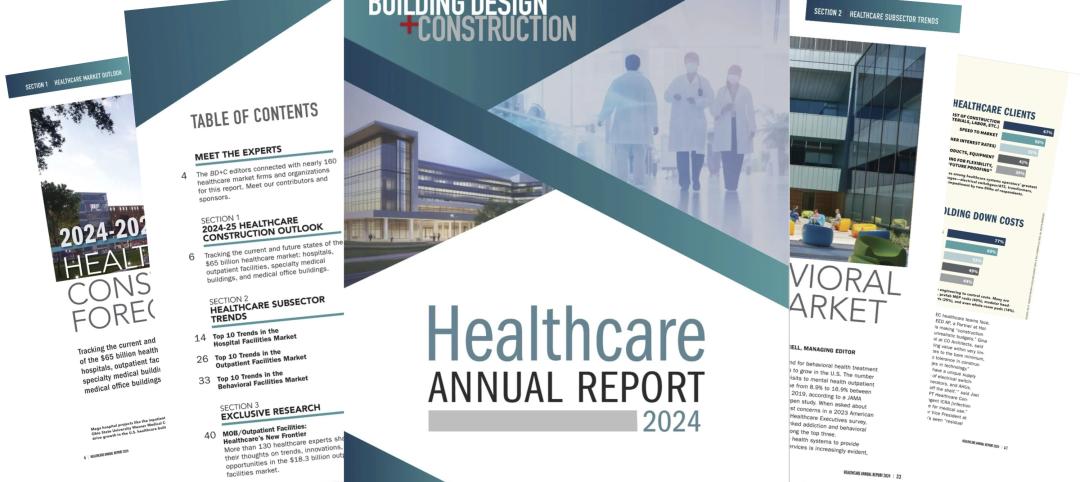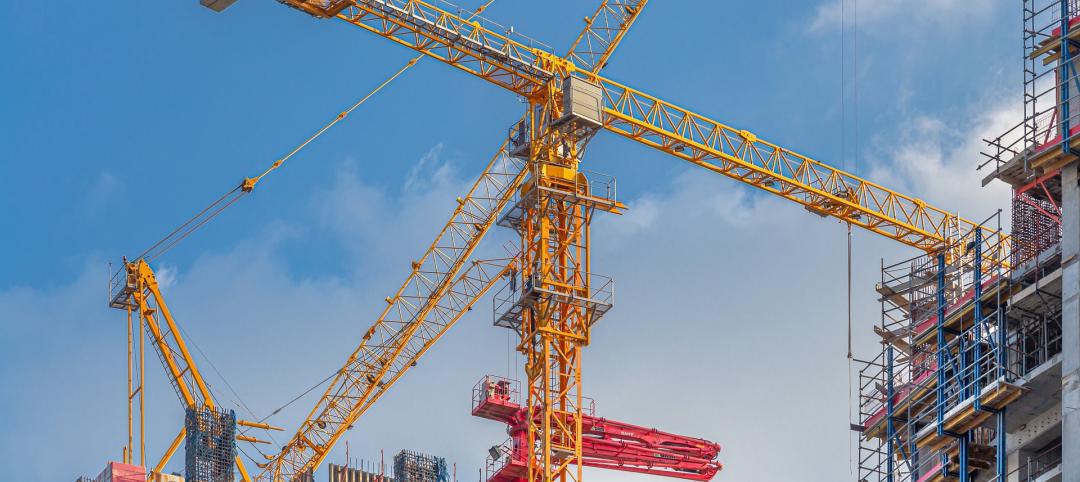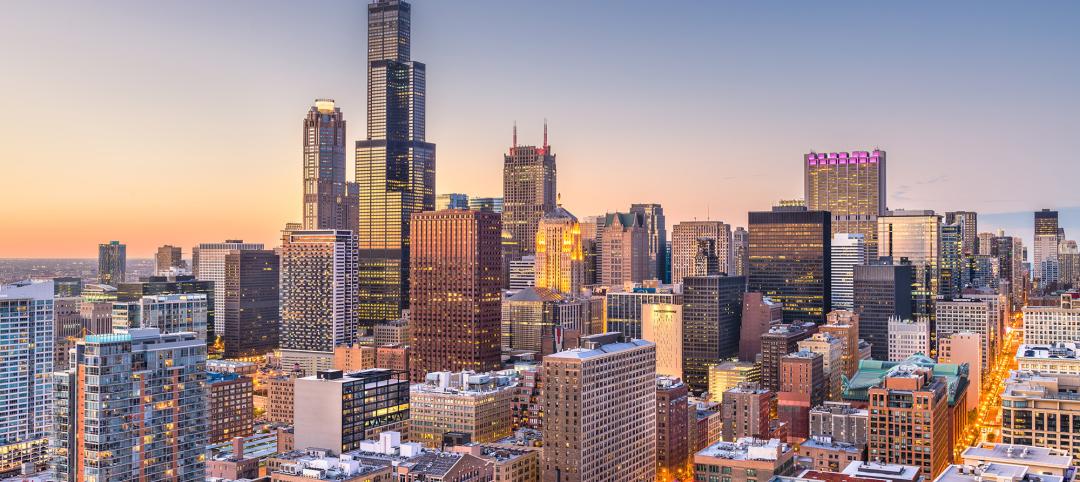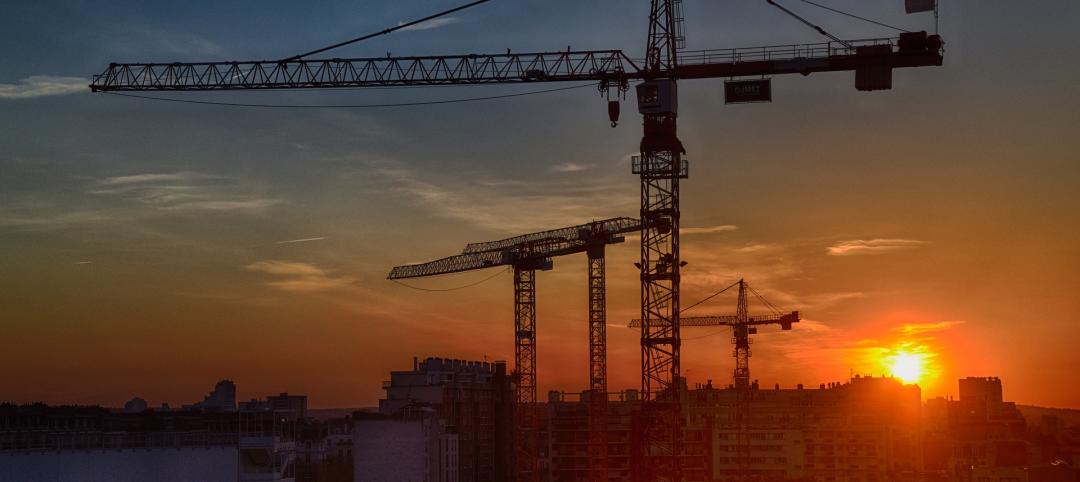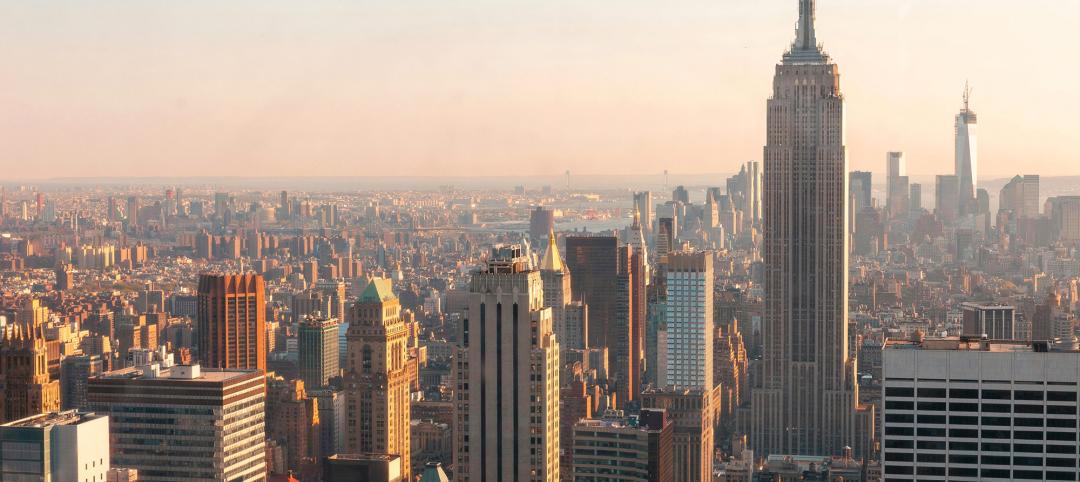Nonresidential construction spending in New York City is projected to reach $39 billion in 2018, a nearly 66% increase over the previous year. However, spending is also expected to tail off significantly during the following two years, according to a new report, Construction Outlook 2018-2020, released today by the New York Building Congress.
Spending for all types construction in New York City is in its fifth year of growth and could hit a record $61.8 billion this year, 25% more than in 2017. That growth is attributable in part to several large-scale projects. The New York Building Congress forecasts that, despite some anticipated falloff over the next two years, total construction spending through 2020 will total $177 billion.
Nonresidential construction alone—which includes offices, institutional, government buildings, sports and entertainment, and hotels—is forecast to add a record 39 million gross sf this year, followed by 30.4 million sf and 23.4 million sf in 2019 and 2020, respectively. The projected decrease in construction spending for nonresidential buildings over the next two years can be pegged to the completion of several big projects by 2020, such as the 58-story 1,401-ft-tall One Vanderbilt, and three buildings within the $20 billion Hudson Yards redevelopment.
(All this new floor space is coming at a time when New York’s office vacancy rate hovers around 13%, according to the website Optimal Spaces.)
Residential construction spending—which in New York is primarily for multifamily buildings—will total $14 billion in 2018, up 6% from the previous year. Next year, residential construction spending is expected to hit $15 billion, and then recede to $10.6 billion in 2020. (The totals include renovations and alterations.)
Over the three years, 60,000 housing units and 107.2 million gross sf will be added, states the report. The average annual unit count, though, would be off from the 27,898 housing units added to the city in 2017.
The report states that construction employment will show growth for the seventh consecutive year in 2018, and top 150,000 jobs for the second consecutive year. While the Building Congress predicts an employment dip—to 145,600 in 2019 and to 147,700 in 2020—those numbers would still be higher than the average for the last five years.
Related Stories
Office Buildings | Jul 22, 2024
U.S. commercial foreclosures increased 48% in June from last year
The commercial building sector continues to be under financial pressure as foreclosures nationwide increased 48% in June compared to June 2023, according to ATTOM, a real estate data analysis firm.
Construction Costs | Jul 18, 2024
Data center construction costs for 2024
Gordian’s data features more than 100 building models, including computer data centers. These localized models allow architects, engineers, and other preconstruction professionals to quickly and accurately create conceptual estimates for future builds. This table shows a five-year view of costs per square foot for one-story computer data centers.
Healthcare Facilities | Jul 16, 2024
Watch on-demand: Key Trends in the Healthcare Facilities Market for 2024-2025
Join the Building Design+Construction editorial team for this on-demand webinar on key trends, innovations, and opportunities in the $65 billion U.S. healthcare buildings market. A panel of healthcare design and construction experts present their latest projects, trends, innovations, opportunities, and data/research on key healthcare facilities sub-sectors. A 2024-2025 U.S. healthcare facilities market outlook is also presented.
Market Data | Jul 16, 2024
Construction spending expected to rise, despite labor and materials snags
In the first half of 2024, construction costs stabilized. And through the remainder of this year, total cost growth is projected to be modest, and matched by an overall increase in construction spending. That prediction can be found in JLL’s 2024 Midyear Construction Update and Reforecast.
Healthcare Facilities | Jul 11, 2024
New download: BD+C's 2024 Healthcare Annual Report
Welcome to Building Design+Construction’s 2024 Healthcare Annual Report. This free 66-page special report is our first-ever “state of the state” update on the $65 billion healthcare construction sector.
Contractors | Jul 9, 2024
The average U.S. contractor has 8.4 months worth of construction work in the pipeline, as of June 2024
Associated Builders and Contractors reported today that its Construction Backlog Indicator increased to 8.4 months in June, according to an ABC member survey conducted June 20 to July 3. The reading is down 0.5 months from June 2023.
Office Buildings | Jul 8, 2024
Office vacancy peak of 22% to 28% forecasted for 2026
The work from home trend will continue to put pressure on the office real estate market, with peak vacancy of between 22% and 28% in 2026, according to a forecast by Moody’s.
Apartments | Jun 25, 2024
10 hardest places to find an apartment in 2024
The challenge of finding an available rental continues to increase for Americans nation-wide. On average, there are eight prospective tenants vying for the same vacant apartment.
Contractors | Jun 12, 2024
The average U.S. contractor has 8.3 months worth of construction work in the pipeline, as of May 2024
Associated Builders and Contractors reported that its Construction Backlog Indicator fell to 8.3 months in May, according to an ABC member survey conducted May 20 to June 4. The reading is down 0.6 months from May 2023.
MFPRO+ News | Jun 11, 2024
Rents rise in multifamily housing for May 2024
Multifamily rents rose for the fourth month in a row, according to the May 2024 National Multifamily Report. Up 0.6% year-over-year, the average U.S. asking rent increased by $6 in May, up to $1,733.


